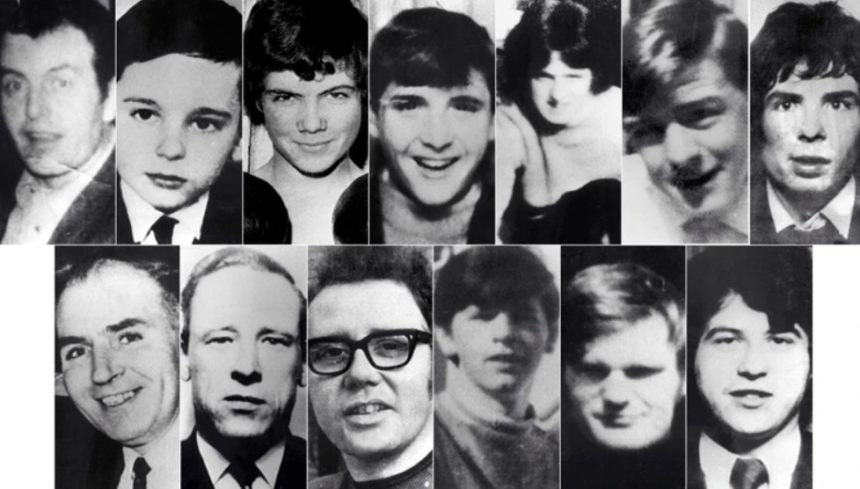Verdict Pending in Soldier F Bloody Sunday Trial at Belfast Crown Court
The courtroom at Belfast Crown Court is tense this morning as Judge Patrick Lynch begins delivering the verdict in the high-profile trial of Soldier F, the former paratrooper indicted of bashing two men during Bloody Sunday. The hail is anticipated to take several hours.
Dogface F, who can not be named due to a court order, has contended not guilty to all charges, which also include five counts of attempted murder.
The trial is taking place without a jury, with the defendant screened from public view.
Families of the victims, some of whom were shot dead or injured in the 1972 civil rights march, walked the familiar route into court this morning, a path they first took at the launch of the trial.
Relatives of Bloody Sunday victims arrive at court in Belfast to hear the verdict in the murder trial of Soldier F. The judge will begin delivering his verdict at 10am pic.twitter.com/AKMlDr751Q
— Stephen Murphy (@SMurphyTV) October 23, 2025
The SDLP MP Colum Eastwood accompanied them. The cousins remained silent as they entered the structure, the weight of history hanging heavy in the air.
“But I don’t think he ever recovered,” said Caroline O’Donnell, whose father, Patsy, was shot in the shoulder on Bloody Sunday and spent three weeks in hospital.
“Even now, I become tearful when I think about the loss of life suffered by the other families.” Patsy O’Donnell, who gave evidence to the Bloody Sunday Inquiry, died in 2006 from cancer, before the findings declared that marchers were innocent.
Thirteen people failed, and at least 15 others were injured when members of the British Army’s Parachute Troop opened fire on civil rights demonstrators in the Bogside area of Londonderry on 30 January 1972.
The day, now etched into history as Bloody Sunday, is extensively regarded as one of the darkest chapters of the Northern Ireland Troubles.
Around 100 people are in the public gallery moment, including family members and musketeers of the victims.
Intelligencers and television crews from across the UK and Ireland have gathered outside Laganside Courts, pressing the enormous public interest in the outcome. A small number of sympathizers for Soldier F are also present outside.
Who is Soldier F?
- A former British soldier who served with the Army’s Parachute Regiment in Northern Ireland during the Troubles.
- Cannot be publicly named due to an interim court order granting anonymity.
- Charged with the murders of William McKinney and James Wray on Bloody Sunday.
- Faces five charges of attempted murder, including that of Patrick O’Donnell, Joseph Friel, Joe Mahon, Michael Quinn, and an unidentified person.
- Prosecuted following a 2019 decision by the Public Prosecution Service (PPS), stemming from a police investigation after the Bloody Sunday Inquiry conducted by Lord Saville.
The decision to make Soldier F came after he was one of 18 dogfaces delved for their involvement in the killings. While original trials of two other stagers collapsed, execution proceeded in 2022 following a legal challenge.
Mickey McKinney, who lost his 26- time-old family member William on Bloody Sunday, traveled to Belfast for the verdict. He described the ongoing impact of that day on his family.
“I hope the judgment will come down on our side,” he said. “His death totally wrecked my mother and father. They were devastated.
William was the eldest son, and growing up after that day, I saw the pain and grief they endured.”
The march on 30 January 1972 drew around 15,000 people to the Creggan area of Derry. Protesters were demonstrating against imprisonment without trial.
The march descended into chaos after clashes between youths and dogfaces, ranging from monuments and rubber pellets to tear gas and water cannon, before paratroopers opened fire at 1610 GMT.
Once the verdict is blazoned, statements from families and legal brigades are anticipated outside the court, bringing check, or further heartbreak, to a chapter of Northern Ireland’s history that continues to reverberate nearly 53 years later.






